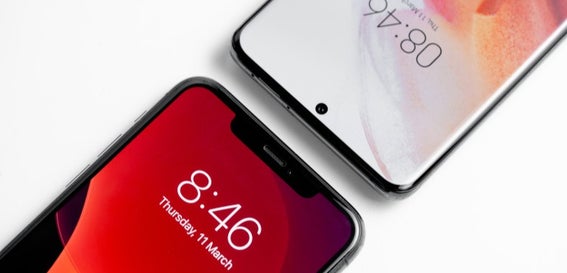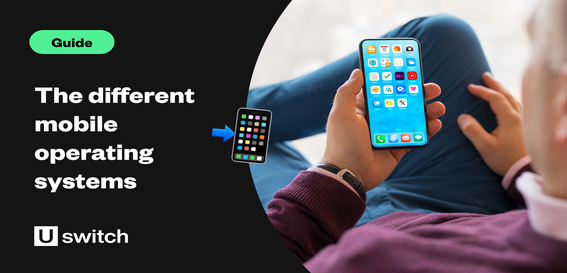If your mobile network has increased your prices mid-contract, you're not alone.
Most mobile providers increase their prices by a small amount each year, to combat upgrades and costs on their end. But what's noticeably different in 2023 is that price increases are becoming much steeper than normal.
That's because many networks' prices are also tied to inflation, which has hit a 40-year high. And unfortunately, that means most mobile prices have shot up between 9-12% — a much higher amount than before.
It's never great news when there's less money in your pocket. But unfortunately, inflation-based price rises are often built into the terms and conditions of the contract you sign with your provider.
So, what can you do when your bill rises unexpectedly? And what rights do you have when it does? Read on and we’ll explain how contract rises work and how you can learn to navigate them.
When do networks increase their prices?

Price rises tend to only happen once a year, with the major UK phone networks attaching their increases to the Retail Prices Index (RPI), plus a standard amount that they will set themselves of around 2-3%.
This used to mean a hike of anywhere between 3% and 4%. But with inflation skyrocketing, it has meant increases of at least 8% across the board, with some reaching 12%.
On a typical £30 per month phone-and-SIM contract, an 8% rise would work out at about £2.40 more per month.
At the upper end of the scale, a 12% increase would see your monthly bill rise by £3.60 per month.
Price rises tend to be announced in January and February, before taking effect in March and April.
What should I do if I'm hit by a price rise?
You might be able to leave your contract free of charge, but it depends on the tariff you want to move to.
Most networks are allowed to rise the price of its monthly deals by the rate of inflation, plus a set additional annual amount. They can legally do this because they mention it in your contract terms when you sign up.
That means that you can’t simply cancel your contract without paying an early exit fee.
However, if your contract is finished, you will be free to switch providers or ask for a better offer from your current network.
Some providers, such as Tesco Mobile, do allow you to leave your contract for another deal free-of-charge. Plus, mobile providers recently agreed to waive early exit fees for customers who want to move onto a cheaper tariff with them.
Learn more about mid-contract prices rises.
What if I think I’m being ripped off?
Yes. Under Ofcom rules, you can quit without paying a penny if you can prove, “material detriment.”
Ofcom says it is, “likely to treat in-term increases to the core subscription price agreed at the point of sale as meeting this material detriment requirement and giving rise to the right of withdrawal".
The bad news is that inflation linked rises are hard to prove as causing material detriment.
Do price rises affect SIM only deals as well as phone-and-tariff contracts?

Yes. Any inflationary hike covers all kinds of monthly mobile contracts, whether they’re for a handset and line rental or a simple calls, data and texts only package.
The good news is that 30-day SIM only contracts can be left at short notice, meaning you can switch to a cheaper deal if you’re unhappy about your bill going up.
Before you choose another network or deal, make sure you take a look at our full selection of SIM only deals.
And if you feel you need a bit of help switching network and transferring your number, we've got you covered with our complete guide to changing network.
Should I switch to pay-as-you-go?
It depends. If you’re a light smartphone user, then pay as you go may be a decent option for escaping the vagaries of unexpected price rises.
But one-month SIM only deals, while susceptible to price rises, are a better bet.
30-day deals mean easily switching if you’re unhappy, with the added bonus of knowing your exact allowance each month.
Need some help choosing a network? Cast your eyes on our complete guide to UK network coverage.






